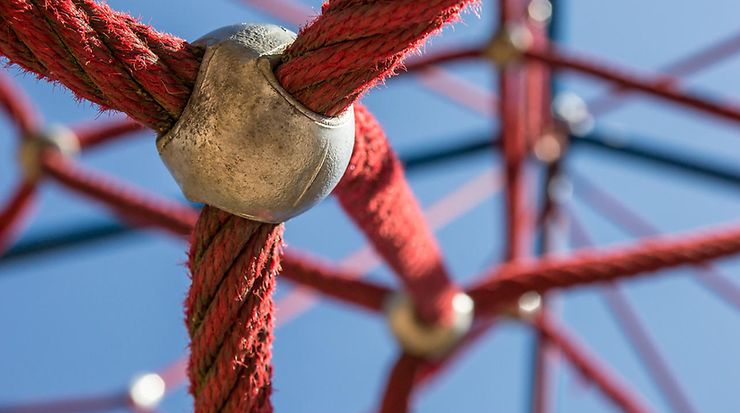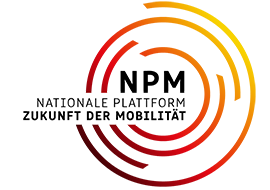Cooperations

National activities
 © NPM
© NPM
In September 2018 the introduction of the National platform “Future of Mobility” (NPM) was agreed. Under the leadership of the German Federal Ministry of Transport and Digital Infrastructure (BMVI), six working groups are finding solutions for all forms of transportation for a sustainable, affordable and climate-friendly mobility. The steering committee led by Prof. Dr. Henning Kagermann is divided into six working groups:
- WG 1: Climate protection in transportation
- WG 2: Alternative drives and fuels for sustainable mobility
- WG 3: Digitalisation for the mobility sector
- WG 4: Ensuring Germany’s leadership in the mobility and production sectors, in battery cell production, raw materials and recycling, education and qualification
- WG 5: Linking the transportation and energy networks
- WG 6: Standardization, certification and type approval
NPM WG 6 (previously WG 4) deals with standardization, certification and type approval. DIN is a permanent “guest” of NPM WG 6 and leads the working group’s steering committee which has an operative function within NPM WG 6.
WG 6 helped develop a white paper covering the entire range of topics dealt with by the group and addressing aspects of standardization. The white paper will be published soon. One of the steps discussed in the white paper is the development of a topical roadmap. DIN has been chosen to lead work on the topical roadmap “Sustainable mobility”.
International activities
 © pixabay.com
© pixabay.com
German-Chinese standardization sub-working group on electromobility
A sub-working group on electromobility, formed in September 2011 within the German-Chinese Standardization Cooperation Commission, provides a structure for experts from both countries to work closely together. Its aim: Finding common solutions within the framework of international standardization and strengthening cooperation among experts and organizations.
The 7th plenary meeting of the electromobility sub-working group jointly led by DIN and SAC met in May 2019 in Xiamen. The German and Chinese experts exchanged information on high power charging, wireless power transfer, traction batteries and automatic charging. They also discussed the topic “intelligent connected vehicles”, agreeing to name subjects for cooperation by mid-2020. At the March 2019 meeting of the sub-working group DIN took part in an experts’ workshop on traction batteries in Tianjin.
 © pixabay.com
© pixabay.com
There has been a cooperation agreement on electromobility between the German Federal Ministry BMWi and the Japanese ministry METI for many years; this agreement was renewed mid-2019 and updated to reflect current aspects. DIN actively represented the German position at a German-Japanese meeting in October 2018. The focus was on future cooperation as a whole, as well as exchanges regarding high power charging (HPC) as regards work with China. DIN has played a major role in preparing the German-Japanese dialogue.
 © pixabay.com
© pixabay.com
The globalized automotive industry is currently turning to international ISO Standards and specifications, as well as standards published by the Society of Automobile Engineers (SAE), a US Standards Developing Organization for automotive technology. However, industry is calling for more universal solutions. The goal is to avoid duplication of work in automobile standardization and to avoid different standards on the same subject.
A join agreement on future cooperation and new standardization topics has been concluded between ISO and SAE. This will ensure more efficient and resource-saving cooperation, e.g. in terms of data security. Work has begun on the development of ISO/SAE 21434 Road Vehicles – Cybersecurity Engineering.
 © sp4764 / Fotolia.com
© sp4764 / Fotolia.com